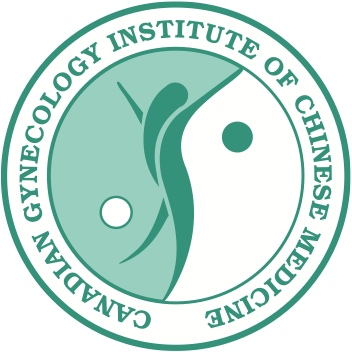Postpartum Depression
The baby blues are normal and experienced by most women. This is when a woman feels emotionally down a few days after birth, it doesn’t require any treatment and mostly resolves on it’s own.
Postpartum depression is a deeper depression and lasts much longer then a few days. It can also begin anytime within the first year after childbirth.
Chinese medicine has quite a different way of looking at postnatal depression, it has to do with blood loss during labour. Both the exertion and blood loss during labour induces a state of blood deficiency, including heart blood deficiency. Since the heart houses the mind and governs the blood, it leaves the mind without anywhere to rest and it becomes depressed and anxious.
This causes the mother to feel depressed, she may feel unable to cope, lose her libido, cry easily, get angry easily and feel guilty. If the condition continues, yin deficiency and empty heat may also develop causing the symptoms to become more severe.
Although not technically postpartum depression, conditions of neurotic, obsessive, phobic or psychotic behaviour can develop after childbirth, but happen because blood is stagnant and harasses the mind. In this case, the mother will appear more confused than depressed.
Treatments in Chinese Medicine are always supported around calming the heart and the mind while addressing either the heart blood deficiency or stagnant heart blood. Herbal medicine is the first choice as it is very effective in adding nourishing substances to the body. Acupuncture is also recommended as it can influence and regulate the hormone system.
Recommended Treatment:
Herbal medicine can be taken, which will help to re-balance the hormones associated with mood and bonding. Herbal medicine can be taken for anywhere from one week to 3 months.
Acupuncture is also well known and effective in regulating the mood, especially postpartum depression. Treatments can be done from 1-2 times per week and continued for a total of 6-8 sessions. The condition should be re-evaluated at that point
Book An Appointment
The Role of Magnesium in Postpartum Depression
Magnesium has been called the “original chill pill” because of the vital role it plays in our body, our brain and therefor our mental health.
People are chronically deficient in magnesium due to poor soil depletion, filtered water and just not eating enough foods high in magnesium. The average dietary intake of magnesium is 250mg (in the US) while the minimum daily intake is between 320 to 420mg per day. All refined grains such as white bread, rice and pasta are stripped of their magnesium. Stress is another enemy to magnesium because causes us to waste our magnesium.
It does matter even if we are a little deficient because magnesium is at the heart of many biochemical reactions all over the body. It is involved in ATP production (cellular energy) and it is present in every cell type in every living thing. Over 300 enzyme reactions require magnesium for their functioning. The bones also depend on magnesium as it is the counter or balancing ion for calcium and potassium in the muscle cells, including in the heart. Most people are deficient in magnesium at the time of a heart attack. It is also an important mineral in the regulation of blood pressure.
Magnesium is an old home remedy for depression, insomnia, muscle cramps, headaches and restlessness.
Magnesium seems to act on many levels within the hormone system because it regulates the stress response. Magnesium can suppress the ability of the hippocampus to stimulate the release of stress hormones, it can reduce the release of ACTH (the hormone that signals the adrenal glands to secrete cortisol and adrenaline), and it can reduce the responsiveness of the adrenal glands to ACTH. Finally, magnesium can act at the blood brain barrier to prevent the entrance of stress hormones into the brain.
The best way to supplement with magnesium is transdermally-or through the skin. The common epsom salts are more technically called magnesium sulphate, which are good, but magnesium chloride (magnesium flakes) is better absorbed-in a bath. It is also recommended to apply and massage int the skin magnesium oil-which is just concentrated magnesium chloride water after a bath with magnesium flakes.
Medicated Diet
Foods to Avoid for Blood Stasis
- Astringing and sour foods such as
- pumpkin
- guava
- wax berry
- pickle
- star fruit
- strawberry
- plum and lemon
Foods rich in fat and cholesterol such as
- egg yolk
- shrimp
- cheese
Foods to Invigorate and Move Blood
- Black soybeans
- dried orange peels
- soybean
- hawthorn fruit
- black fungus
- oyster mushroom
- onion
- leek
- fennel
- shitake mushroom
- eggplant
- mango
- rose
- papaya
- brown sugar
- rice wine (small quantities)
Foods to Build Blood
- alfalfa sprouts
- artichoke
- beetroot
- button mushroom
- cabbage
- celery
- dandelion leaf
- dark leafy greens
- kelp
- shiitake mushroom
- spinach
- watercress
- wheatgrass
- apple
- apricot
- avocado
- date
- fig
- grape
- longan
- mulberry
- aduki
- black soya
- kidney
- almonds
- black sesame seeds
- mussel
- octopus
- oyster
- sardine
- tuna
- all red meat especially bone marrow and liver (beef, pork, sheep)
- dairy
- chicken egg
- nettle
- parsley
- molasses
- soya milk
- algae (spirulina, chlorella)
- Dang Gui
- bee pollen

